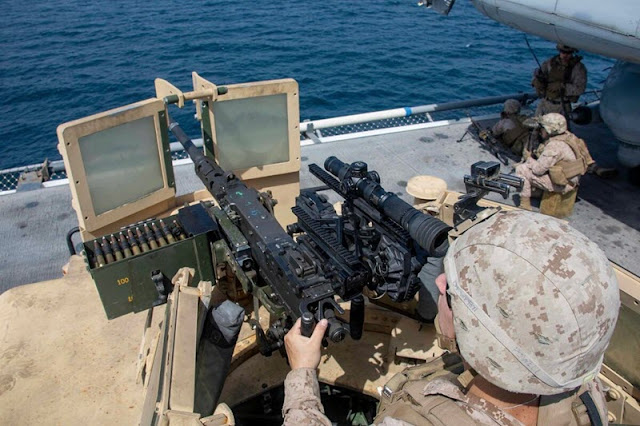By Shahriar Kia
The United States' decision to surge additional military forces into the Middle East was based in part on intelligence that the Iranian regime has told some of its proxy forces and surrogates that they can now go after American military personnel and assets in the region, according to three U.S. officials familiar with the intelligence, NBC News reported.
The intelligence shows that an Iranian official discussed activating Iranian-backed groups to target Americans, but did not mention targeting the militaries of other nations, the officials said.
Among the specific threats the U.S. military is now tracking, officials say, are possible missile attacks by Iranian dhows, or small ships, in the Persian Gulf; attacks in Iraq by Iranian-trained Shiite militia groups; and attacks against U.S. ships by the Houthi rebels in Yemen.
The U.S. has accused Iran's regime of moving missiles and missile components through the region's waterways for years, shipping missiles to the Houthis in Yemen and others. And Shiite militia groups like Baghdad Katib Hezbollah (BKH) have been in Iraq for years, acting essentially as sleeper cells. What is new and what has alarmed U.S. military officials, sources told NBC News, is the call to awaken and activate these existing threats.
One U.S. official said Iran's regime usually conceals the missiles and components when delivering them to the Houthis. These missiles are visible to overhead surveillance, leading to concerns the Iranian regime could attempt to launch missiles from the dhows. There are some indications they have mobile launchers on board, as well, one of the officials said.
The three officials say that in addition to learning that an Iranian official had discussed attacks on Americans, the U.S. began seeing the movement of Iranian and Iranian-backed forces in various places across the region, prompting the commander of U.S. Central Command, Marine Corps Gen. Frank McKenzie, to request additional forces move to the region.
On Sunday, U.S. Acting Secretary of Defense Patrick Shanahan approved the request to accelerate the deployment of the USS Abraham Lincoln Carrier Strike Group and a bomber task force to the region. National Security Adviser John Bolton announced the movement in a statement Sunday night.
"U.S. Central Command has seen recent and clear indications that Iranian and Iranian proxy forces were making preparations to possibly attack U.S. forces in the region," said CENTCOM spokesperson, Capt. Bill Urban. "This include threats on land and in the maritime. We are not going to be able to provide detailed information on specific threats at this time."
"Make no mistake, we are not seeking a fight with the Iranian regime," Gen. McKenzie said Wednesday during a speech at the Foundation for Defense of Democracies, a think tank that favors a tough U.S. posture toward Iran's regime. "Any attack on U.S. interests will be met with unrelenting force."
Despite the increase in U.S. military heft to the region, the Iranian regime has not slowed its movement of forces or changed its posture, according to the three U.S. officials.
source:
ncr-iran




Comments
Post a Comment